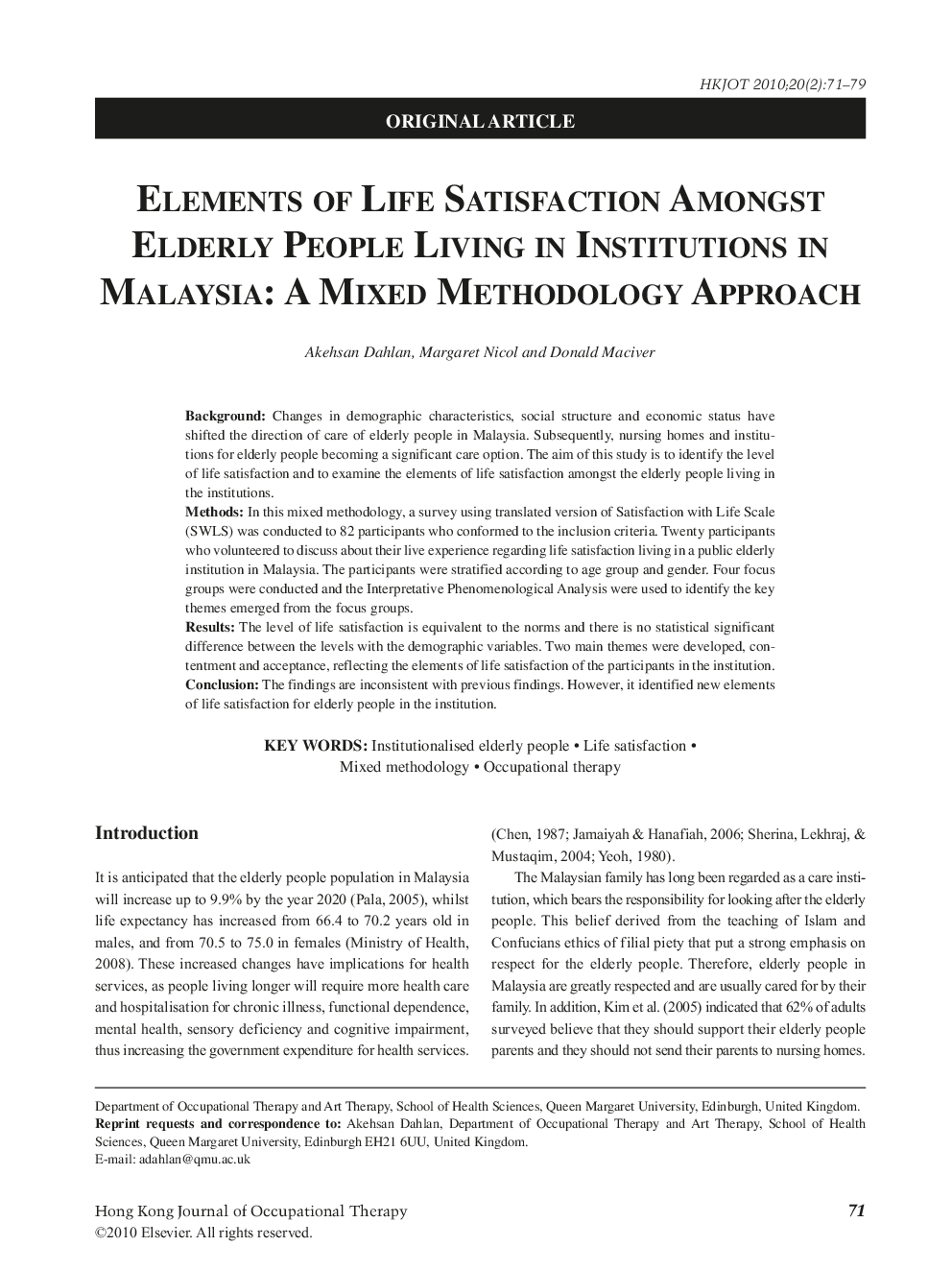| Article ID | Journal | Published Year | Pages | File Type |
|---|---|---|---|---|
| 2691771 | Hong Kong Journal of Occupational Therapy | 2010 | 9 Pages |
BackgroundChanges in demographic characteristics, social structure and economic status have shifted the direction of care of elderly people in Malaysia. Subsequently, nursing homes and institutions for elderly people becoming a significant care option. The aim of this study is to identify the level of life satisfaction and to examine the elements of life satisfaction amongst the elderly people living in the institutions.MethodsIn this mixed methodology, a survey using translated version of Satisfaction with Life Scale (SWLS) was conducted to 82 participants who conformed to the inclusion criteria. Twenty participants who volunteered to discuss about their live experience regarding life satisfaction living in a public elderly institution in Malaysia. The participants were stratified according to age group and gender. Four focus groups were conducted and the Interpretative Phenomenological Analysis were used to identify the key themes emerged from the focus groups.ResultsThe level of life satisfaction is equivalent to the norms and there is no statistical significant difference between the levels with the demographic variables. Two main themes were developed, contentment and acceptance, reflecting the elements of life satisfaction of the participants in the institution.ConclusionThe findings are inconsistent with previous findings. However, it identified new elements of life satisfaction for elderly people in the institution.
